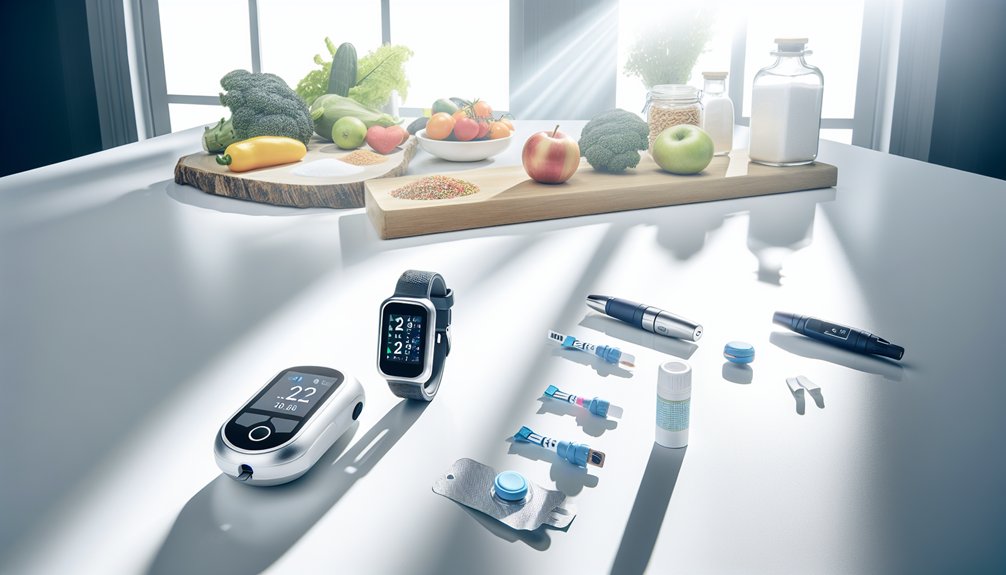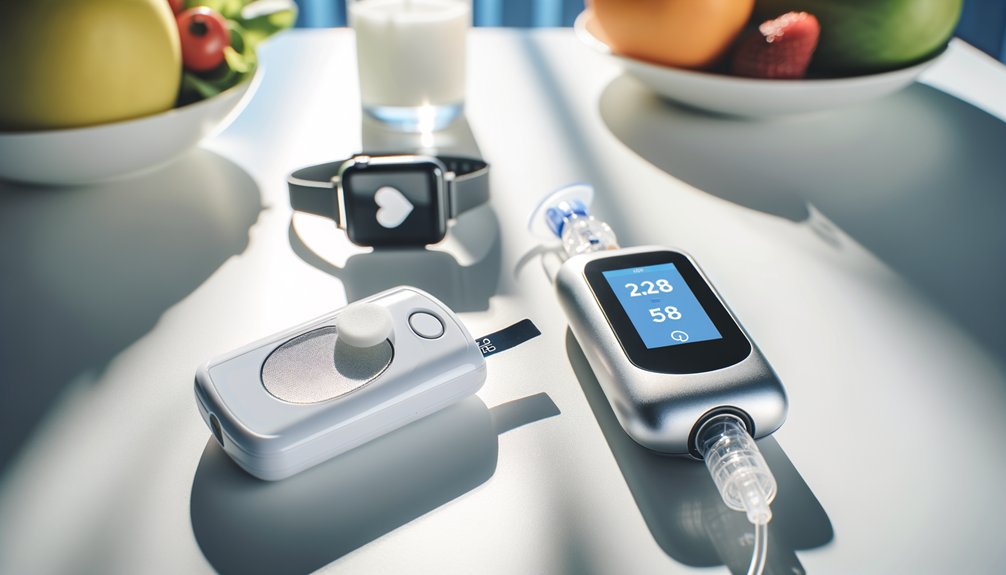Managing Type 1 diabetes can feel like steering a rollercoaster. It’s all about balancing insulin therapy, monitoring, and smart eating. Regular check-ups keep you on track, while support from family and friends makes the journey easier. Counting carbs can help adjust insulin doses, giving you more control over your day. Remember, even small victories matter—they build your confidence! With these strategies, better blood sugar control is within reach. There’s more to explore about this journey.

Managing Type 1 diabetes can often feel like climbing a mountain—daunting at first, yet rewarding with every step taken. Each day brings its own challenges, but with the right tools and knowledge, individuals can conquer their diabetes journey. Insulin therapy plays a significant role in this adventure. Utilizing continuous subcutaneous insulin infusion through insulin pumps or multiple daily injections can make life a bit easier. Insulin analogs or inhaled options are often preferred, as they help reduce the risk of those dreaded low blood sugar moments. Adjusting insulin doses based on what’s eaten, activity levels, and current glucose readings is fundamental for staying on track.
Another fundamental tool is Continuous Glucose Monitoring (CGM). Starting CGM early can transform the way a person manages their diabetes, leading to improved glycemic control and reduced hypoglycemia incidents. CGM recommended for adults enhances the management strategies for individuals with diabetes, optimizing their daily routines. Automated insulin delivery systems take it a step further, optimizing glucose management and providing peace of mind. Modern real-time monitoring through smartwatch integration allows for discreet and convenient glucose tracking throughout the day. This technology not only aids in monitoring blood sugar levels but also helps in making informed decisions about lifestyle choices.
Continuous Glucose Monitoring transforms diabetes management, enhancing glycemic control and empowering informed lifestyle choices.
Nutritional management is equally important. Embracing balanced eating patterns stabilizes blood glucose levels and promotes overall health. It’s critical, especially for younger individuals, to stay active and limit sedentary behaviors. Educating oneself about carbohydrate counting can lead to better insulin dose adjustments, making daily life smoother.
Alongside these practical strategies, psychosocial support plays a significant role in diabetes management. Addressing diabetes distress is key, especially for children and adolescents. Engaging family and community support fosters better adherence to treatment plans.
With the right approach, including regular check-ups and medication for cardiometabolic risks, individuals can navigate their diabetes journey more effectively. Embracing every small victory makes the climb worthwhile, reinforcing that managing Type 1 diabetes, while challenging, can lead to a fulfilling life filled with hope and resilience.
